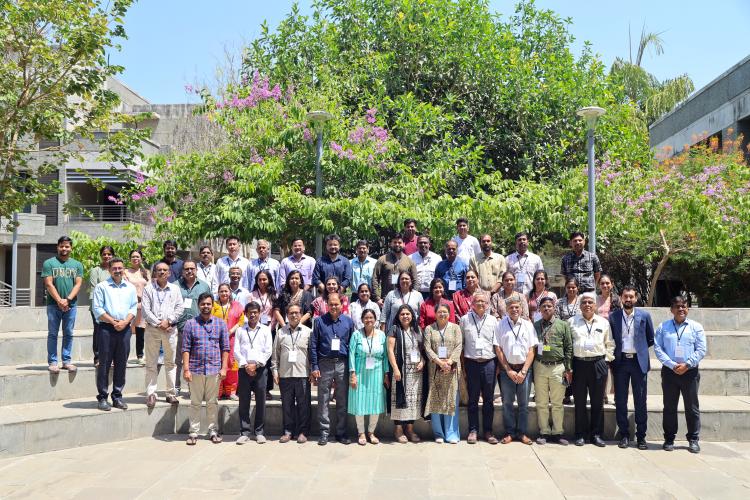Based on support request received from India, CBIT GSP has organized the In Country Support Activity for India.
Background
Greenhouse Gas (GHG) inventories offer valuable insights into the emissions and removals of GHG from various sources and sinks in the different sectors of the economy. Once this information is gathered, it becomes possible to identify suitable mitigation actions or policies, develop baseline scenarios, and formulate projections. Furthermore, countries that are parties to the United Nations Framework Convention on Climate Change (UNFCCC) and also the Paris Agreement must regularly submit their GHG inventories. From 2024 onwards, countries have to submit the Biennial Transparency Report (BTR) and one of the mandatory elements is the national inventory report, including the national GHG inventory document (NID) and common reporting tables.
For preparing and reporting national GHG inventories for the BTR, countries must use the 2006 Intergovernmental Panel on Climate Change (IPCC) 2006 guidelines and the adopted common reporting tables (CRT), as prescribed by the relevant CMA decisions (dec. 18/CMA.1, 5/CMA.3). Having adequate knowledge of the 2006 IPCC Guidelines is crucial for countries to ensure the quality of GHG inventories and meet the TACCC principles (i.e. transparency, accuracy, completeness, consistency and comparability). Furthermore, to improve GHG inventories over time, countries need to have a deep understanding of the importance of various components involved in the preparation and management of a GHG inventory, such as data collection and management (e.g. archiving), quality assurance and quality control (QA/QC), verification, key category analysis, recalculation and uncertainty assessment, and improvement planning.
Exploring the 2006 IPCC Guidelines for National Greenhouse Gas Inventories is essential in the Energy, IPPU, Agriculture, FOLU and Waste Sectors, providing a comprehensive roadmap for effective GHG emission and removal reporting measures. The 2006 IPCC guidelines cover all major sources and sinks of GHGs, providing guidance on data collection, emission/removal estimation, uncertainty assessment, and reporting requirements. This comprehensive coverage ensures that countries consider all relevant factors in their inventory preparation, leading to more accurate and comprehensive assessments of their emissions profile. The 2006 IPCC guidelines for national GHG inventories offer policymakers useful insights, allowing them to evaluate the efficacy of current climate policies, pinpoint areas that require immediate attention, and monitor advancements towards emission reduction goals. Precise and dependable inventories are crucial for formulating evidence-based policies that promote sustainable development and climate resilience.
Objectives and purpose of the training
The primary objectives of this training workshop are to provide participants with a comprehensive understanding of the 2006 IPCC Guidelines for National Greenhouse Gas Inventory in all Sectors. Participants will explore the fundamental principles, methodologies, and reporting requirements outlined in these guidelines, with a specific focus on their practical application. The workshop aims to equip participants with the knowledge and insights necessary to actively contribute to accurate measurement and reporting of greenhouse gas emissions, fostering a deeper understanding of sustainability practices in these critical sectors.
Specific objectives:
- Equip participants with a deeper understanding of the IPCC 2006 guidelines for GHG inventory across five sectors.
- Familiarize participants with the Biennial Transparency Report requirements under the Paris Agreement and its Enhanced Transparency Framework (ETF).
- Guide participants in developing a comprehensive national inventory document.
- Provide hands-on training on utilizing the common reporting table for efficient reporting.
- Exchange experiences and lessons learned, corresponding to the application of tools and systems for reporting inventory data with ETF provisions.
- Foster collaboration and knowledge sharing among participants from diverse backgrounds and sectors.
